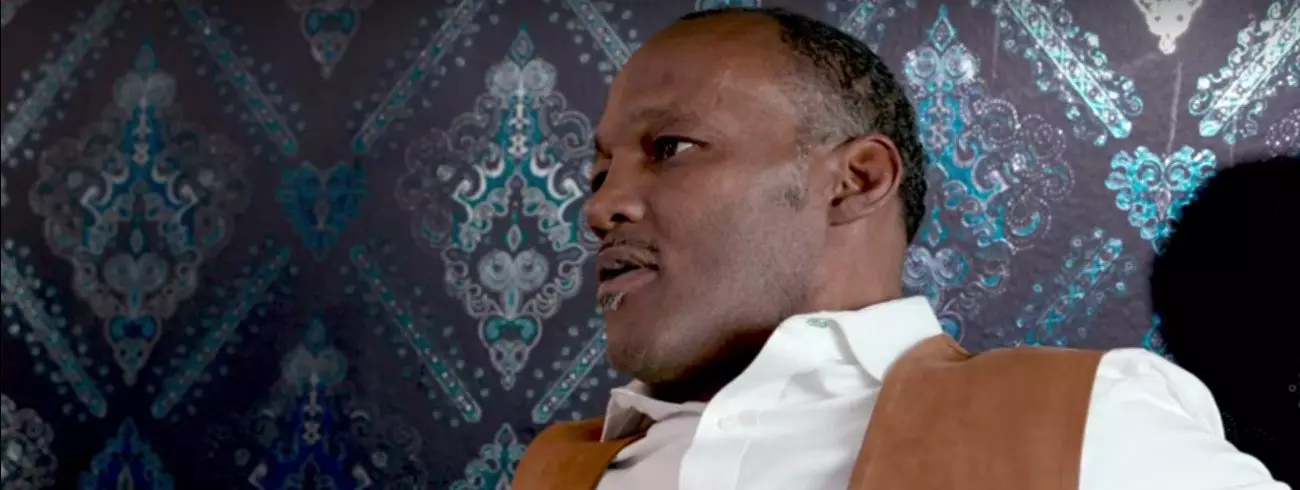Donald Curry, a name that resonated with boxing fans during the late 1980s, now faces a fight outside the ring that requires more than just physical prowess—it’s a battle against debilitating mental health challenges. At 63 years old, the former welterweight and light-middleweight champion, once hailed as a potential successor to Sugar Ray Leonard, is grappling with Traumatic Encephalopathy Syndrome. This condition not only threatens his well-being but also raises significant concerns about the lasting impacts of a sport that weighs heavily on the mind and body of its athletes.
Curry’s legacy is marked by triumphs, including earning accolades for his speed and strategic fighting style, solidifying his place in boxing history. However, as his son, Donovan Curry, recently revealed through a heartfelt social media post, the present reality for Donald is grim. With a deteriorating mental state characterized by impaired reasoning, memory issues, and poor impulse control, the Curry family is now in urgent need of assistance, sparking a larger conversation about the responsibilities of the sports community towards its ailing heroes.
The tragic tale of Donald Curry serves as a poignant reminder of boxing’s double-edged sword. The sport, which enshrines its champions as titans of strength and resilience, often forgets the less glamorous aftermath for those who have dedicated their lives to the ring. Fighters like Curry, who once basked in the adoration of fans and the glow of neon lights, now find themselves vulnerable and isolated, battling health issues that many outside the boxing world might not fully grasp.
While Curry’s accomplishments in the ring provided him with fame and wealth, the long-term consequences of a brutal sport often take precedence in the lives of retired athletes. A history of CTE (Chronic Traumatic Encephalopathy) and related disorders among boxers, stemming from repeated head trauma, brings to light the urgent need for better protection and aftercare for fighters. Curry’s case underlines the heartbreaking reality that, often, it is the very individuals who once brought joy and excitement to the sport who are left navigating their darkest days alone.
Donovan Curry’s appeal for assistance is not merely a personal plea; it’s an appeal to the broader boxing community. His call for help in locating a specialized facility that can cater to Donald’s unique needs underscores a critical gap in resources available for former athletes. The community, fans, and organizations that once celebrated Curry’s achievements now have an opportunity to give back and ensure he receives the care he so desperately requires.
Moreover, this situation calls into question the responsibilities of sports organizations and associations to establish comprehensive support systems for retired athletes. The need for accessible mental health resources, rehabilitation facilities, and ongoing support must become a priority within the boxing community. Campaigns and fundraisers could serve dual purposes; they could not only provide immediate financial assistance for Curry’s care but also raise awareness about the challenges facing many former athletes.
Honoring a Legacy with Compassion
As boxing fans, the legacy of Donald Curry extends beyond his impressive career stats and championship titles. It resides in the memories and emotions he stirred in fans during his prime. The echoes of his triumphs should not fade into neglect as he faces adversity. Instead, this is a moment for reflection on how we treat our sports heroes—those who have entertained us and contributed to the rich tapestry of sports history.
In closing, Donald Curry’s fight against Traumatic Encephalopathy Syndrome is not merely a personal struggle but a reflection on how the sports world can and should respond to the ferocious realities faced by its warriors. As efforts to find appropriate care for Curry continue, let this case be a catalyst for systemic change that prioritizes the well-being of all athletes, allowing them to receive the recognition and respect they deserve even long after their final bout.

